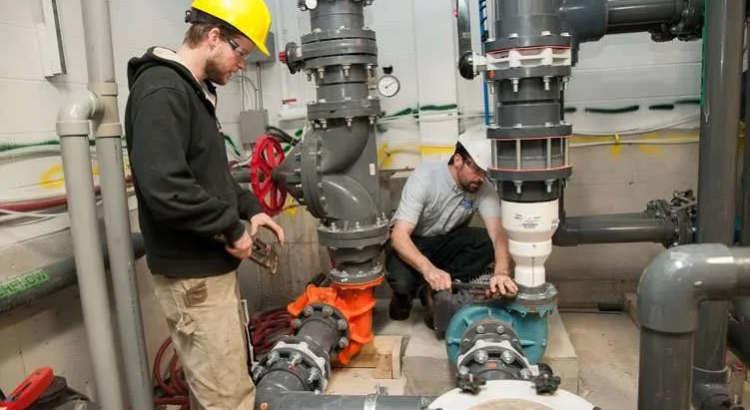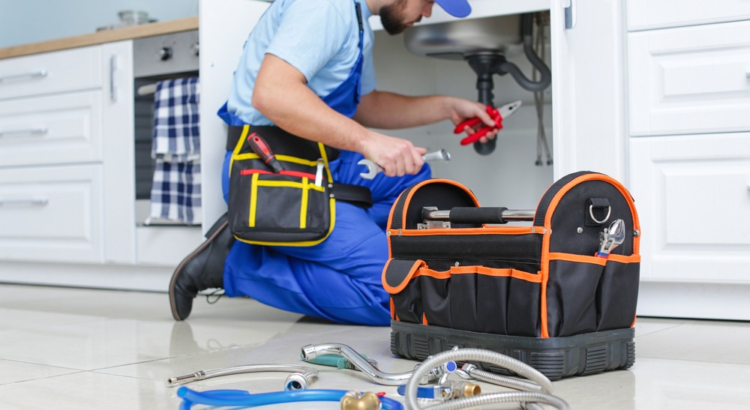Aurora CO Plumbers install, maintain, and repair plumbing systems in a variety of settings. They often work with construction teams to ensure that plumbing is integrated seamlessly into building projects, and they may be responsible for interpreting blueprints and plans.
They also provide customer service, and many plumbers choose to work independently or run their own businesses. This can be a highly rewarding career, but it can also involve significant risk.

The job duties of plumbers include installing, repairing, and maintaining plumbing systems. They are also responsible for ensuring that all work meets building codes and safety standards. Plumbers must have a good understanding of water, gas, and drainage systems to effectively diagnose issues and provide solutions. They may be required to perform inspections using video cameras and other specialized tools. They must also be able to read and interpret blueprints, and prepare estimates for their work. Plumbers also need to be able to respond quickly to emergency calls.
The career of a plumber can be very rewarding, but it is also challenging and physically demanding. It is a great option for people who enjoy working with their hands and like the challenge of solving problems. It is also a good choice for people who want to avoid the high cost of a traditional college education and instead gain the skills they need through a trade school or apprenticeship program.
In addition to their technical work, plumbers must be able to interact with clients in a professional and courteous manner. They should be able to explain complex plumbing issues in simple terms and answer questions clearly. They may be required to work on weekends and holidays to address urgent plumbing needs. They must also be able to handle physical labor, including lifting and carrying objects weighing up to 90 pounds and climbing and working from ladders.
The career of a plumber is fairly stable and offers a competitive salary. In addition, plumbers can choose to become self-employed and enjoy the freedom and flexibility of running their own business. Plumbers are in demand throughout the country, and their work is essential to ensuring that homes and businesses have safe and functioning water and waste systems. Plumbers are also often in demand during disasters, such as flooding or hurricanes. As a result, plumbers can usually find employment, even during hard economic times. They are also typically paid a higher hourly rate than other construction workers. This is because they have more specialized training and are able to perform more complicated and complex tasks.
Work Environment
Plumbers must work with a wide variety of tools and equipment. They use pipe cutters, soldering torches, pipe wrenches, and other specialized tools to install pipes and plumbing fixtures. They also use testing equipment to identify issues and determine how to repair them. Plumbers may need to travel long distances to reach emergency jobs, so they need a flexible schedule and may be required to work nights and weekends.
Some plumbers work on construction sites, where they collaborate with other members of the construction team to lay out plumbing systems according to blueprints and specifications. They may also be responsible for connecting plumbing to appliances like water heaters, dishwashers, and toilets. They can also be required to perform maintenance and inspections on existing plumbing systems in residential and commercial buildings.
Customer service skills are essential for plumbers, as they often interact with clients to discuss their plumbing needs and provide advice and recommendations. They must be able to explain technical information in a clear and understandable manner. They must also be able to give accurate cost estimates for plumbing projects.
Depending on the nature of their job, plumbers may need to deal with hazardous materials or be exposed to unpleasant or unsafe working conditions. They must adhere to all safety protocols, including wearing protective gear when necessary. Plumbers must also be prepared for unexpected challenges, such as weather conditions or unforeseen problems with plumbing systems.
Although becoming a plumber requires significant education and training, it is an excellent career choice for people who enjoy hands-on work, problem-solving, and providing a valuable service to the community. Licensed plumbers are in high demand, and the field offers steady employment and excellent job security. Many plumbers also choose to become independent contractors, allowing them to have more control over their work environment and scheduling. In addition, those who want to advance their careers can pursue additional certifications and specializations in the field. The American Society of Plumbing Engineers (ASPE) offers a number of certificate programs, conferences, and mentoring opportunities for plumbing professionals. Those interested in pursuing a plumbing apprenticeship should contact local unions or trade schools to find out about available programs.
Training Requirements
Getting the proper training is essential for anyone interested in becoming a plumber. This can be achieved through a formal apprenticeship program, college degree program, or through work experience with a master plumber. In addition, there are a number of additional courses that can be taken to help increase a plumber’s marketability or improve job performance. These include courses on OSHA (Occupational Safety and Health Administration) standards and procedures, plumbing code compliance, and manufacturer-specific training on specific products or systems.
The educational requirements vary by jurisdiction, but typically involve a high school diploma or GED certificate and a minimum of four years of apprenticeship or journey worker experience. In some cases, a bachelor’s degree in a relevant field and five years of experience can qualify someone to become a master plumber. Applicants must submit detailed work history to the local licensing board and pass an exam. Some states also require a background check and proof of insurance and bonding.
While some apprenticeship programs require formal education, many are available through community colleges and trade institutions. LaGuardia Community College, for example, offers a plumbing and electrical instrumentation course that gives students the opportunity to learn hands-on skills in residential and commercial plumbing. Nassau Boces offers an Adult Plumber Apprenticeship Program that trains participants in the basics of plumbing, including how to handle tools of the trade, adhere to safety standards, and understand piping layouts for water supply, drainage, waste, and ventilation systems.
Other classes that can help a plumber advance in the career include training on code compliance, backflow prevention devices, and plumbing system inspections. These courses are often offered through professional organizations and trade associations, as well as some manufacturers.
A journey plumber must complete a minimum of seven years of experience, including two years as a journeyman, before being eligible to take the master plumber exam. In addition, he must successfully complete a written and practical exam. The process requires a thorough work history, documentation of all relevant training and experience, a notarized affidavit from a sponsoring master plumber, and a passing score on the exam. Many cities and counties require a master plumber to have continuing education classes to keep up with changes in the plumbing codes.
Salary
The gurgle and hiss of a sink in disrepair can be the sound of financial disaster, or the gateway to a prosperous career. A plumber’s paycheck depends on several factors that can send it soaring or swirling down the drain.
Plumbers enjoy competitive wages and a steady stream of work, largely because the services they provide are essential. Homeowners, businesses and public facilities all need plumbing maintenance, upgrades, and new installations, so demand remains high even in uncertain economic times.
Plumbing is also a specialized trade that offers a lot of career flexibility. Plumbers can get the necessary on-the-job training by shadowing more experienced workers, or they can pursue classroom training at a technical school. The latter route typically requires more time to complete, but it can lead to a higher salary.
Experience and skill level also affect the plumber’s salary. An entry-level plumber may start at $40,000, but seasoned veterans can earn upward of $80,000. This is because the more they learn and their resulting expertise increase their value, which translates to higher paychecks.
Another factor that influences the plumber’s salary is location. In general, metropolitan areas tend to pay higher salaries than rural locations. This is because of the increased costs associated with living and working in an urban area.
In addition to monetary compensation, many plumbers find satisfaction in their work because it makes a positive difference in people’s lives. By ensuring that water flows smoothly and that sewer pipes remove waste efficiently, plumbers help improve the quality of life in their communities. This can be a satisfying career choice for people who are naturally friendly and enjoy meeting new people on a regular basis.
A downside to the job is that it can be physically demanding and requires a certain degree of physical fitness. It’s also important to prioritize safety and follow all applicable safety guidelines when handling hazardous materials. For example, plumbers should use proper lifting techniques and wear appropriate personal protective equipment when dealing with potentially dangerous chemicals and gases. Lastly, plumbers should regularly attend seminars and continuing education classes to keep up with industry trends and regulations.


